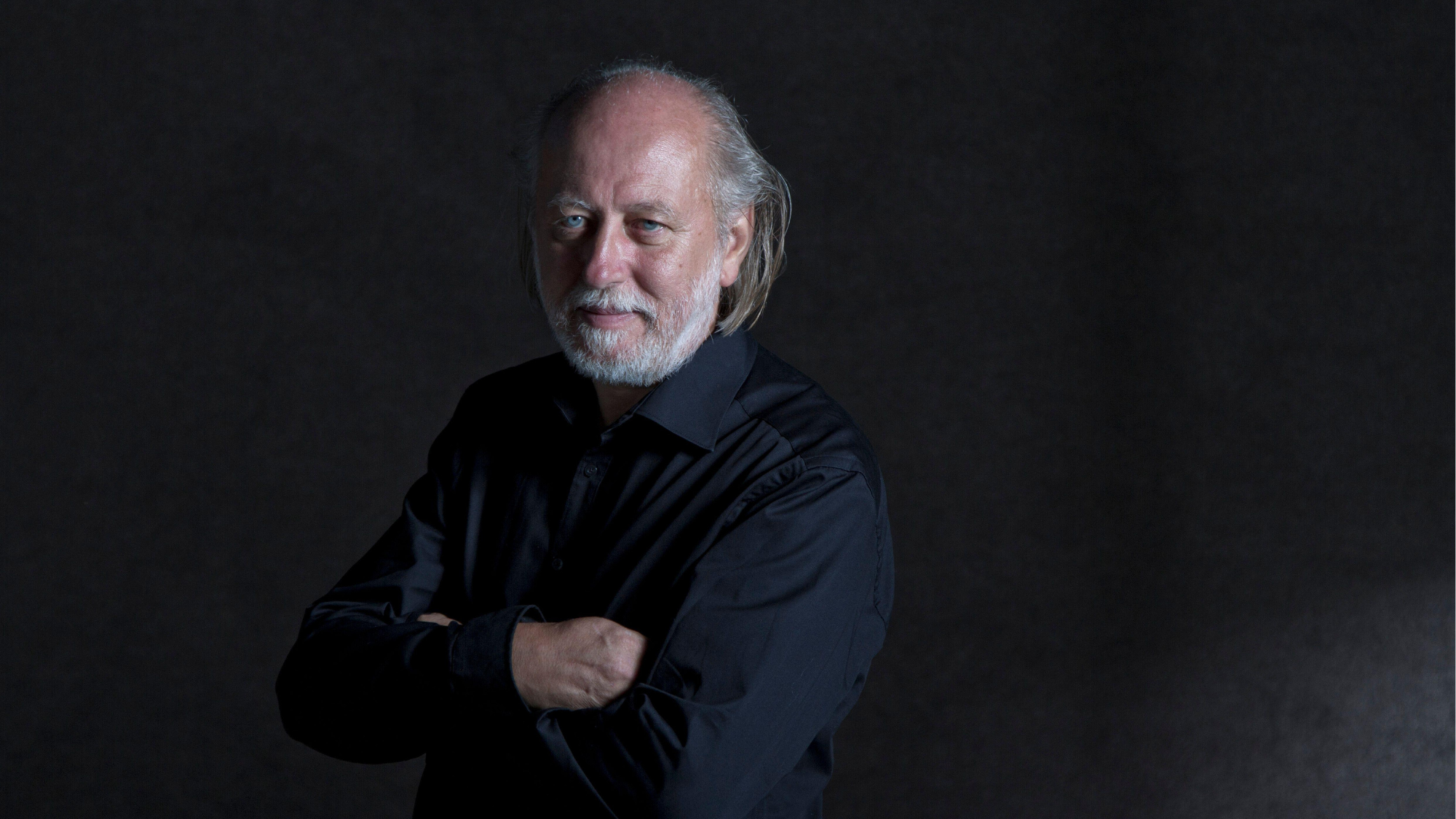What to read by Nobel Prize in Literature winner László Krasznahorkai
The Hungarian writer’s melodic prose is ‘quite unlike anyone else’s’

A free daily email with the biggest news stories of the day – and the best features from TheWeek.com
You are now subscribed
Your newsletter sign-up was successful
His “dystopian, melancholic novels” have earned lavish praise from the likes of Colm Tóibín, Susan Sontag and W.G. Sebald, said Emma Loffhagen in The Guardian. Now, László Krasznahorkai has scooped the biggest prize in literature. Announcing the 71-year-old Hungarian as the winner of the 2025 Nobel Prize, the Swedish Academy cited his “compelling and visionary oeuvre that, in the midst of apocalyptic terror, reaffirms the power of art”.
Krasznahorkai is “almost a parody of a Nobel winner”, said John Self in The Times. “His novels are dark and gloomy, favour atmosphere over plot, and are written in long sentences that make up even longer paragraphs.” But they’re certainly original. No one else could have written his novel “War and War”, about a suicidal man who travels to New York to “type out an ancient manuscript on the internet before taking his own life”. And they do offer something “for the general reader”, though you “need to take your time with him”.
Krasznahorkai’s best-known novel is his 1985 debut, “Sátántangó”, about an impoverished Hungarian village visited by a devil-figure, said Frederick Studemann in the Financial Times. Written in chapters made up of single paragraphs, it was later turned into a seven-hour-plus film. Subsequent works have included “Seiobo There Below” (2008), an episodic narrative made up of 17 stories, and last year’s “Zsömle odavan” (“Zsömle is Waiting”), about a retired electrician with a claim to the Hungarian throne.
The Week
Escape your echo chamber. Get the facts behind the news, plus analysis from multiple perspectives.

Sign up for The Week's Free Newsletters
From our morning news briefing to a weekly Good News Newsletter, get the best of The Week delivered directly to your inbox.
From our morning news briefing to a weekly Good News Newsletter, get the best of The Week delivered directly to your inbox.
Krasznahorkai’s prose – simultaneously melodic and dissonant – is “quite unlike anyone else’s”, said Claire Allfree in The Telegraph. If you haven’t read him before, start with “A Mountain to the North” (2022), a “spare, beautiful, entrancing novella set in a Kyoto monastery”.
A free daily email with the biggest news stories of the day – and the best features from TheWeek.com
-
 Bad Bunny’s Super Bowl: A win for unity
Bad Bunny’s Super Bowl: A win for unityFeature The global superstar's halftime show was a celebration for everyone to enjoy
-
 Book reviews: ‘Bonfire of the Murdochs’ and ‘The Typewriter and the Guillotine’
Book reviews: ‘Bonfire of the Murdochs’ and ‘The Typewriter and the Guillotine’Feature New insights into the Murdoch family’s turmoil and a renowned journalist’s time in pre-World War II Paris
-
 Witkoff and Kushner tackle Ukraine, Iran in Geneva
Witkoff and Kushner tackle Ukraine, Iran in GenevaSpeed Read Steve Witkoff and Jared Kushner held negotiations aimed at securing a nuclear deal with Iran and an end to Russia’s war in Ukraine
-
 Bad Bunny’s Super Bowl: A win for unity
Bad Bunny’s Super Bowl: A win for unityFeature The global superstar's halftime show was a celebration for everyone to enjoy
-
 Book reviews: ‘Bonfire of the Murdochs’ and ‘The Typewriter and the Guillotine’
Book reviews: ‘Bonfire of the Murdochs’ and ‘The Typewriter and the Guillotine’Feature New insights into the Murdoch family’s turmoil and a renowned journalist’s time in pre-World War II Paris
-
 6 exquisite homes with vast acreage
6 exquisite homes with vast acreageFeature Featuring an off-the-grid contemporary home in New Mexico and lakefront farmhouse in Massachusetts
-
 Film reviews: ‘Wuthering Heights,’ ‘Good Luck, Have Fun, Don’t Die,’ and ‘Sirat’
Film reviews: ‘Wuthering Heights,’ ‘Good Luck, Have Fun, Don’t Die,’ and ‘Sirat’Feature An inconvenient love torments a would-be couple, a gonzo time traveler seeks to save humanity from AI, and a father’s desperate search goes deeply sideways
-
 A thrilling foodie city in northern Japan
A thrilling foodie city in northern JapanThe Week Recommends The food scene here is ‘unspoilt’ and ‘fun’
-
 Tourangelle-style pork with prunes recipe
Tourangelle-style pork with prunes recipeThe Week Recommends This traditional, rustic dish is a French classic
-
 Samurai: a ‘blockbuster’ display of Japan’s legendary warriors
Samurai: a ‘blockbuster’ display of Japan’s legendary warriorsThe Week Recommends British Museum show offers a ‘scintillating journey’ through ‘a world of gore, power and artistic beauty’
-
 BMW iX3: a ‘revolution’ for the German car brand
BMW iX3: a ‘revolution’ for the German car brandThe Week Recommends The electric SUV promises a ‘great balance between ride comfort and driving fun’